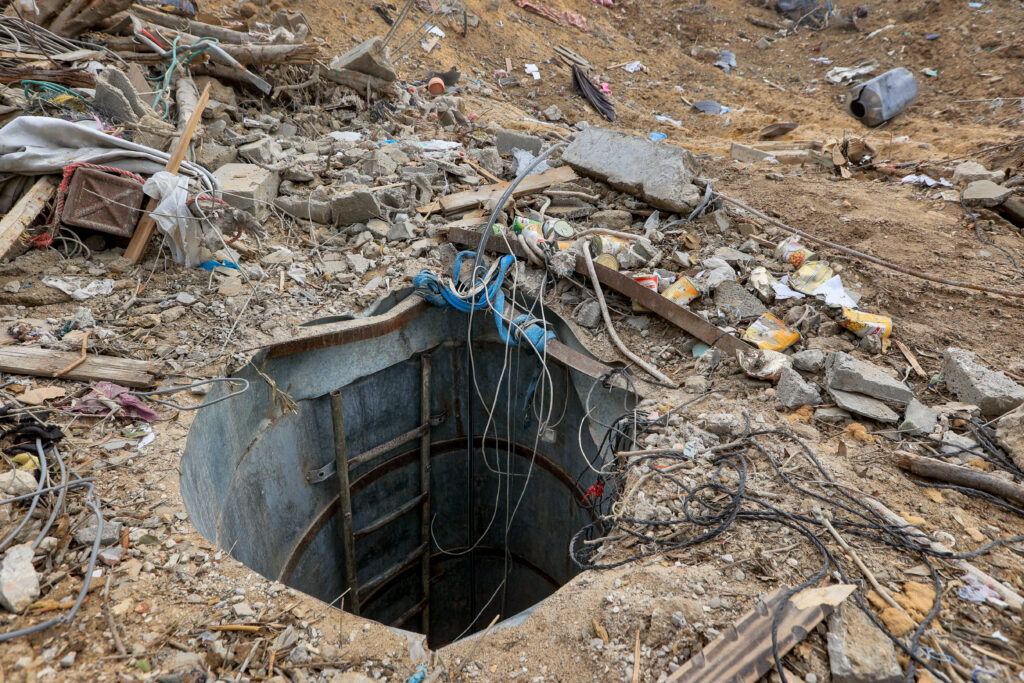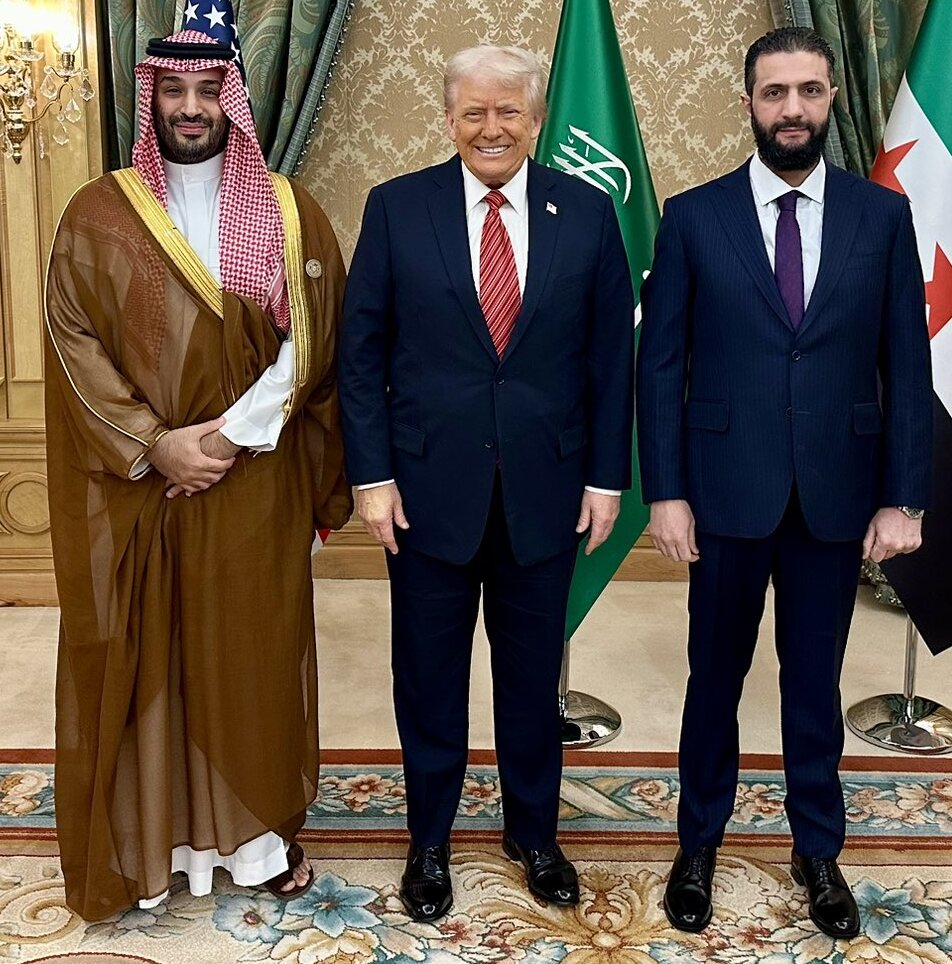Until Washington recognizes that ideology, not economics, drives the Middle East, its diplomacy will remain blind to the forces shaping the region.
For all the good the Trump administration has done in the Middle East – restoring “Peace through Strength”-style deterrence, rebuilding alliances, and rejecting the Obama-era tilt toward Iran – it is now making a number of mistakes that stem from two fundamental errors that threaten to undermine much of that progress. Both stem from Western misunderstandings of the region’s political and religious realities.
Washington continues to believe that prosperity can moderate jihadist ideology. The assumption is that if you give Islamists a chance at a better life – reconstruction funds, open markets, foreign investment – they will drop their commitment to holy war and join the “family of nations.”
This is wishful thinking. The jihadists of Hamas, Hezbollah, Iran, and Syria’s new strongman Ahmed al-Sharaa – a former al-Qaeda and ISIS terrorist recently welcomed to Washington after being delisted as a “specially designated global terrorist” – do not prioritize prosperity. They want victory. They want the destruction of Israel and the submission of the West.
The Treasury Department’s recent sanctions on Hezbollah financiers – individuals who moved hundreds of millions of dollars from Iran to Lebanon this year alone – are commendable. Yet, at the same time, the administration pressures Israel to grant “safe passage” to Hamas gunmen trapped in Rafah, men who violated the ceasefire and murdered Israeli soldiers. Why? Because Washington wants the appearance that the Trump peace plan is working. The visual of Hamas fighters laying down arms and being amnestied would feed the narrative that a peaceful disarming of the terrorist group is actually possible.

The prioritizing of jihad over economic well-being is not only a cynical policy of Middle East governments. A recent Palestinian Center for Policy and Survey Research (PSR) poll of Gazans showed that an overwhelming majority do not want Hamas to lay down its weapons to end the war, even after months of suffering, displacement, and hardship. Western observers find this incomprehensible.
If Hamas disarmed, Gaza could finally rebuild, attract foreign investment, and realize the prosperity promised in every Western peace plan. Still, Gazans overwhelmingly choose continued conflict over economic revival, because for them, jihadist ideology trumps (no pun intended) economic well-being.
This same error underlies US policy toward Iran. When President Donald Trump said that he would allow Tehran to continue selling oil to China “to rebuild its economy” after the 12-day war with Israel, he seemed to believe that the regime’s priority was infrastructure and jobs. In reality, Iran has used the proceeds to buy new fighter jets and air-defense systems, and to funnel hundreds of millions of dollars to Hezbollah.
The notion that jihadists can be bribed into moderation is a dangerous fantasy. Their ideology is not negotiable, and their ambitions are not economic. Until the West accepts this truth, it will continue to enable the perpetuation of ideologically jihadist regimes.
Trump’s misunderstanding of Qatar and Turkey
THE SECOND strategic error is treating Turkey and Qatar as part of the same camp as the Saudis, Emiratis, and other legitimately moderate nations that genuinely seek stability and cooperation with the West.
In reality, Turkey under Erdogan and Qatar are the twin capitals of the Muslim Brotherhood world. Doha bankrolls Hamas and gives asylum to its leadership. Turkish state media glorifies Hamas. On the other hand, Ankara recently issued arrest warrants for Prime Minister Benjamin Netanyahu and 36 other Israeli officials – mimicking the International Criminal Court’s antisemitic campaign that President Trump himself rightly condemned in February.
Trump speaking after meeting al-Sharaa in the White House:
— Visegrád 24 (@visegrad24) November 11, 2025
“It was an Honor to spend time with Ahmed Hussein al-Sharaa, the new President of Syria, where we discussed all the intricacies of PEACE in the Middle East, of which he is a major advocate.
I look forward to meeting… pic.twitter.com/GhktuxGW4H
Yet both Turkey and Qatar continue to be treated by Washington as partners in peace. The administration behaves as though these Islamist powers can play a constructive role in disarming Hamas and rebuilding Gaza. But they cannot – and will not. They are ideologically invested in Hamas’s survival. The Muslim Brotherhood ideology that drives them is the same one that drives Hamas, al-Qaeda, and now Syria’s new “postwar” regime under al-Sharaa.
It’s worth remembering that Saudi Arabia, the UAE, Jordan, and other genuinely moderate Arab governments have formally designated the Muslim Brotherhood as a terrorist organization. In 2017, that ideological divide nearly sparked open conflict between a Saudi-led coalition and Qatar over the latter’s support for terrorism. That rift has never healed. Pretending that Turkey and Qatar are part of the “moderate” bloc is a denial of realities on the ground.
Trump’s current Middle East policy seeks to thread the needle – to isolate Iran while engaging its proxies, to rebuild Gaza while a disarmed Hamas survives, to treat jihadists as rational actors motivated by economics rather than theology. This balancing act cannot hold.
Until Washington recognizes that ideology, not economics, drives the Middle East – and that Turkey and Qatar are on the wrong side of the regional divide – its diplomacy will remain blind to the forces shaping the region. That blindness will mean more pressure on Israel, more empowerment of Islamists, and ultimately, more instability for everyone.
The writer is the executive director of Israel365action.com and host of the Shoulder to Shoulder podcast.
Originally appeared in the Jerusalem Post, reposted with permission




